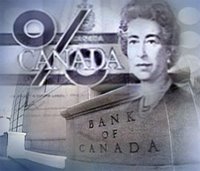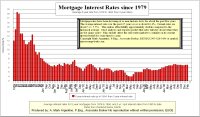
Watch out for these common income tax mistakes that people make
With our hefty tax code, it's almost impossible to keep track of all the deductions available to Canadian taxpayers. So it's not surprising that many people miss out and end up paying too much tax.
According to one expert, even those who hire professionals to complete their returns aren't immune.
"So much is riding on the information you provide," says Evelyn Jacks, president of Knowledge Bureau Inc., and author of numerous books about tax return preparation.
"To get the best results, you have to stay informed. If you don't know what information to give, you won't get all the deductions."
With Jacks' help, we've prepared a list of easy-to-overlook tax deductions and reduction strategies to help you complete this year's return and to prepare for next year's.
1) Write off your safety deposit box
Safety deposit boxes are considered part of the carrying charge of holding securities and are deductible from the revenue earned on those securities. According to Jacks, this deduction, though relatively small, can add up over the course of several years.
The Canada Revenue Agency (CRA) lets you amend prior years' tax returns. If you have overlooked deductions in the past but have kept the receipts, it may pay to file an amendment.
2) Carry forward RRSP contributions
Although the vast majority of people take the deduction for their RRSP contribution as soon as they can, it may pay to wait, as the CRA lets you carry forward your RRSP deduction.
If you think you will be in a higher tax bracket in the coming years, you might consider taking the deduction later when it may have a great impact on reducing your taxes.
3) Get a GST refund on union dues
Although most people know union dues are tax deductible, the GST paid on those dues qualifies as a direct tax credit, which means you should get all of it back.
4) Write off your moving expenses
You can deduct moving expenses if you are transferred or if you move to take a new job. But according to Jacks, you should still hang on to your receipts even if you don't find a job right away.
Those deductions will still be valid when you begin to generate employment or self-employment income.
5) Borrow to invest, not to buy a home
A huge portion of typical household debt is comprised of mortgage payments. But many families that owe money on their homes also own investments or businesses. If they do, they are missing out on a big potential tax break.
Because mortgage interest payments are not tax deductible in Canada, as they are in the U.S., a far better strategy is to borrow money against your investments instead of your house. Then your interest payments will be deductible against revenue you earn from those investments.
6) Track all business expenses
Although most small- and medium-sized businesses have good internal controls in place to track their spending and expenses, most self-employed individuals do not. Self-employed individuals should keep all their work-related receipts.
Seemingly minor expenses such as parking fees, meal expenses, (when the object of your meeting is to discuss business) or office supplies add up when accumulated over the course of the year.
7) Split income with your spouse
In many households, one spouse earns more than the other and is consequently taxed at a higher marginal rate. In these cases it pays to transfer income to the lower wage-earner whenever feasible.
There are numerous strategies for doing so, but the rules are complex. Your accountant should be able to help.
8) Contribute to a spousal RRSP
Spousal RRSPs are an excellent way to split retirement income. In fact, you can contribute any part of your regular allowable RRSP contribution to your spouse's plan, even if he or she has already made a contribution that year.
9) Balance capital gains and losses
When you sell an investment that has increased in value, whether it is a stock or bond, you will likely have to pay tax on the accumulated capital gain.
Take this opportunity to sell any money-losing investments you may have, and apply the capital gain against the capital loss that you are taking. You may be able to avoid some, or possibly all, of the tax owing.
10) Keep up to date
It is unrealistic for most Canadians to become tax experts, but that doesn't mean you should play the helpless puppy. If you don't understand something about you taxes, find the answer.
Read more about taxes and the benefits of real estate home ownership

For more information please contact A. Mark Argentino
A. Mark Argentino, Broker, P.Eng.,
Specializing in Residential & Investment Real Estate
RE/MAX Realty Specialists Inc., Brokerage
2691 Credit Valley Road, Suite 101, Mississauga, Ontario L5M 7A1
BUS. 905-828-3434
FAX. 905-828-2829
E-MAIL: mark@mississauga4sale.com
Website: Mississauga4Sale.com
With our hefty tax code, it's almost impossible to keep track of all the deductions available to Canadian taxpayers. So it's not surprising that many people miss out and end up paying too much tax.
According to one expert, even those who hire professionals to complete their returns aren't immune.
"So much is riding on the information you provide," says Evelyn Jacks, president of Knowledge Bureau Inc., and author of numerous books about tax return preparation.
"To get the best results, you have to stay informed. If you don't know what information to give, you won't get all the deductions."
With Jacks' help, we've prepared a list of easy-to-overlook tax deductions and reduction strategies to help you complete this year's return and to prepare for next year's.
1) Write off your safety deposit box
Safety deposit boxes are considered part of the carrying charge of holding securities and are deductible from the revenue earned on those securities. According to Jacks, this deduction, though relatively small, can add up over the course of several years.
The Canada Revenue Agency (CRA) lets you amend prior years' tax returns. If you have overlooked deductions in the past but have kept the receipts, it may pay to file an amendment.
2) Carry forward RRSP contributions
Although the vast majority of people take the deduction for their RRSP contribution as soon as they can, it may pay to wait, as the CRA lets you carry forward your RRSP deduction.
If you think you will be in a higher tax bracket in the coming years, you might consider taking the deduction later when it may have a great impact on reducing your taxes.
3) Get a GST refund on union dues
Although most people know union dues are tax deductible, the GST paid on those dues qualifies as a direct tax credit, which means you should get all of it back.
4) Write off your moving expenses
You can deduct moving expenses if you are transferred or if you move to take a new job. But according to Jacks, you should still hang on to your receipts even if you don't find a job right away.
Those deductions will still be valid when you begin to generate employment or self-employment income.
5) Borrow to invest, not to buy a home
A huge portion of typical household debt is comprised of mortgage payments. But many families that owe money on their homes also own investments or businesses. If they do, they are missing out on a big potential tax break.
Because mortgage interest payments are not tax deductible in Canada, as they are in the U.S., a far better strategy is to borrow money against your investments instead of your house. Then your interest payments will be deductible against revenue you earn from those investments.
6) Track all business expenses
Although most small- and medium-sized businesses have good internal controls in place to track their spending and expenses, most self-employed individuals do not. Self-employed individuals should keep all their work-related receipts.
Seemingly minor expenses such as parking fees, meal expenses, (when the object of your meeting is to discuss business) or office supplies add up when accumulated over the course of the year.
7) Split income with your spouse
In many households, one spouse earns more than the other and is consequently taxed at a higher marginal rate. In these cases it pays to transfer income to the lower wage-earner whenever feasible.
There are numerous strategies for doing so, but the rules are complex. Your accountant should be able to help.
8) Contribute to a spousal RRSP
Spousal RRSPs are an excellent way to split retirement income. In fact, you can contribute any part of your regular allowable RRSP contribution to your spouse's plan, even if he or she has already made a contribution that year.
9) Balance capital gains and losses
When you sell an investment that has increased in value, whether it is a stock or bond, you will likely have to pay tax on the accumulated capital gain.
Take this opportunity to sell any money-losing investments you may have, and apply the capital gain against the capital loss that you are taking. You may be able to avoid some, or possibly all, of the tax owing.
10) Keep up to date
It is unrealistic for most Canadians to become tax experts, but that doesn't mean you should play the helpless puppy. If you don't understand something about you taxes, find the answer.
Read more about taxes and the benefits of real estate home ownership
For more information please contact A. Mark Argentino
A. Mark Argentino, Broker, P.Eng.,
Specializing in Residential & Investment Real Estate
RE/MAX Realty Specialists Inc., Brokerage
2691 Credit Valley Road, Suite 101, Mississauga, Ontario L5M 7A1
BUS. 905-828-3434
FAX. 905-828-2829
E-MAIL: mark@mississauga4sale.com
Website: Mississauga4Sale.com




















